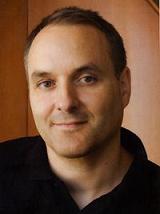| |
| NETWORK
PUBLICATIONS |
|
A
New Book Series: Mathematics
in Mind from Springer (flyer)
Marcel Danesi (University of Toronto)
Mathematics
in Mind: The monographs and occasional textbooks published
in this series tap directly into the kinds of themes,
research findings, and general professional activities
of the Fields Cognitive Science Network, which brings
together mathematicians, philosophers, and cognitive
scientists to explore the question of the nature of
mathematics and how it is learned from various interdisciplinary
angles.
|
|
|
Mind
in Mathematics: Essays on Mathematical Cognition and
Mathematical Method (2015).
Mariana
Bockarova (Harvard University), Marcel Danesi (University
of Toronto), Dragana Martinovic (University of Windsor),
and Rafael Núñez (University of California,
San Diego) (eds.), Interdisciplinary Studies on the
Nature in Mathematics 03, 214pp, Lincom Europa.
|
..png) |
Discovery
in Mathematics: An Interdisciplinary Perspective (2013).
Marcel Danesi (University of Toronto), Interdisciplinary
Studies on the Nature of Mathematics 02, 186pp, Lincom
Europa.
|
 |
|
Semiotic
and Cognitive Science Essays on the Nature of Mathematics
(2012).
Mariana
Bockarova (Harvard University), Marcel Danesi (University
of Toronto), and Rafael Núñez (University
of California, San Diego) (eds.), Interdisciplinary
Studies on the Nature of Mathematics 01, 240pp, Lincom
Europa.
|
.png) |
EVENTS
ORGANIZED BY THE NETWORK
2016
October
14, 2016 at 10:00am
Chandler Davis (Emeritus, University of Toronto)
Talk Title: TBA
Fields Institute, Stewart Library
2015
March
6, 2015 at 10:00am
Robert Logan (Physics and St. Michael's College, University
of Toronto)
What Is Information?
Fields Institute, Stewart Library
Shannon's Mathematical Theory of Information made an important
contribution to our general understanding of information
and found many applications in addition to his original
engineering objective of determining the accuracy of transmitting
a set of signals from a sender to a receiver. I suggest
that Shannon created a theory of signals rather than a theory
of information because of its lack of a concern with meaning
and interpretation. Shannon readily admitted his theory
was not concerned with the meaning of transmitted signals
when he wrote: "Frequently the messages have meaning...
These semantic aspects of communication are irrelevant to
the engineering problem." This talk will explore the
complex nature of information and the many ways in which
this term is used. A distinction is made between the Shannon's
notion of information and biotic information based on the
Kauffman, Logan et al paper entitled The Propagation of
Organization: An Enquiry. We suggested that the constraints
that allow an organism to convert energy from its environment
into the work required to maintain its metabolism represents
biotic or instructional information, which differs from
Shannon information. Terrence Deacon use of information
as constraints in his book Incomplete Nature is described.
The talk will also include other results from What is
Information? - Propagating Organization in the Biosphere,
the Symbolosphere, the Technosphere and the Econosphere
(Logan 2014). Attendees at the talk will be offered a free
copy of the digital version of this book.
2013
March
21-23, 2013
Workshop
on Mind in Mathematics: New Frontiers
Annual workshop of the network
Fields Institute FieldsLive
video
January
18, 2013 at 10 a.m.
John Mighton (JUMP and Fields Institute)
The Importance of Teaching Math to Children
Fields Institute, FieldsLive
video
In
my talk I will argue that our society is harmed in many
ways because we do not teach children according to their
true potential in mathematics. I will present evidence
from psychological and educational research, as well as
evidence gathered by the JUMP program, that ability in
math can be nurtured in virtually all students. I will
examine the barriers that students typically face in learning
math and suggest strategies for reducing those barriers.
BIO: John Mighton OC is the founder of JUMP math, a charity
dedicated to improving the teaching of mathematics. He
has taught math at U of T, philosophy at McMaster, and
is a fellow of the Fields Institute. His plays have received
a number of national awards, including two Governor General's
awards, and have been performed around the world.
2012
November
2, 2012
Guest Lectures on Studying Mathematical Cognition:
Semiotic and Cognitive Science Perspectives
Fields Institute
Two
lectures on the nature of mathematics,
10-11:
Marcel Danesi
Mathematics: A View from Vico
11-12:
Rafael Núñez
Are Mathematical Formal Definitions What We Think They
Are?
Weierstrass, Continuity, and Modern Cognitive Science
Affiliated
Event
November
17, 2012
University of Toronto
Interdisciplinary Symposium on the Mind
Sandford Fleming Building, University of Toronto
October
11-12, 2012
Workshop on the Interdisciplinary Study of Mathematics
Organizers: Mariana Bockarova, Marcel Danesi, Dragana Martinovic,
John Mighton, Rafael Núñez, & Mark Turner.
Fields Institute
2011
March 14-18, 2011
Workshop
on Semiotics, Cognitive Science and Mathematics
Fields Institute
(Audio and slides of talks)
|